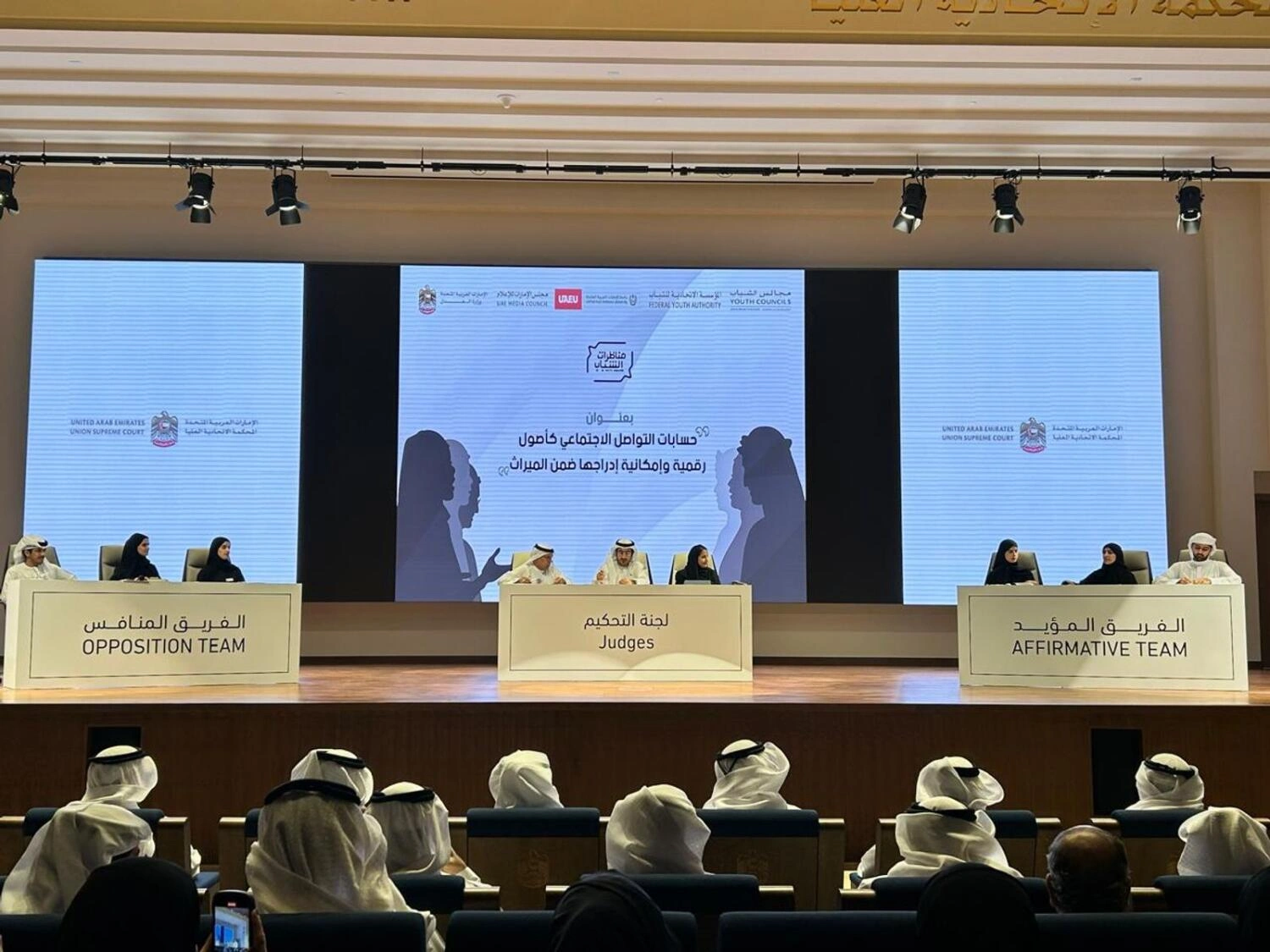In today’s digital world, social media often reflects an individual’s personality. But should social media accounts be treated as inheritable assets after death? This question was debated at the Federal Supreme Court in Abu Dhabi on November 20, sparking a conversation on digital inheritance and its implications.
The Debate: Digital Footprints as Assets
Law students from UAE University formed the affirmative team, arguing that social media accounts qualify as digital assets because of their emotional and financial value. They highlighted examples like Instagram, where users own their content, which can have real monetary worth.
Nouf Balbuhair, a team member, stated:
“Digital accounts hold monetary and emotional value. For some, they represent years of investment and engagement that shouldn’t disappear after death.”
The team also cited the sale of Jack Dorsey’s first tweet as an NFT for $2.9 million to demonstrate the potential financial significance of digital footprints. They advocated for changes to inheritance laws, proposing international agreements to clarify how digital assets should be passed on. Their argument emphasized balancing privacy and ownership while addressing the challenges of the digital age.
Privacy Concerns Take Center Stage
The opposing team, led by Tarf Al-Qahtani and Samah Al-Karbi, argued that social media accounts are personal and lack the defining traits of traditional digital assets. They stressed that these accounts often contain private information not intended for public or family access.
Al-Karbi stated:
“These accounts often contain private information not meant for public or familial scrutiny, even after death.”
The opposing side referred to global privacy laws like the General Data Protection Regulation (GDPR), which extend data protection rights beyond an individual’s lifetime. They pointed out that social media accounts do not meet criteria like scarcity or consistent economic value since they can be created endlessly.
Expert Perspectives and Final Ruling
The debate, organized by the Federal Youth Authority, aimed to engage Emirati youth in legal discussions. The arbitration panel included notable experts such as Dr. Mohammed Mahmoud Al Kamali, Maitha Majid Al Suwaidi, and Judge Dr. Yaqoub Yousef Al Hammadi.
Dr. Al Kamali noted:
“This is not merely a legal issue; it’s a philosophical one. It challenges how we define ownership and legacy in the digital age.”
Ultimately, the arbitration panel ruled in favor of the affirmative team, recognizing the potential for social media accounts to be treated as inheritable assets. However, the discussion remains far from settled.
Adding to the intrigue, the Minister of Justice, Abdullah Sultan bin Awad Al Nuaimi, offered his perspective at the conclusion:
“I will use my veto right to oppose both teams as winners,” he said, highlighting the ongoing complexity of this evolving issue. This debate shed light on the challenges of digital inheritance, leaving room for further discussions as laws and technology continue to evolve.





